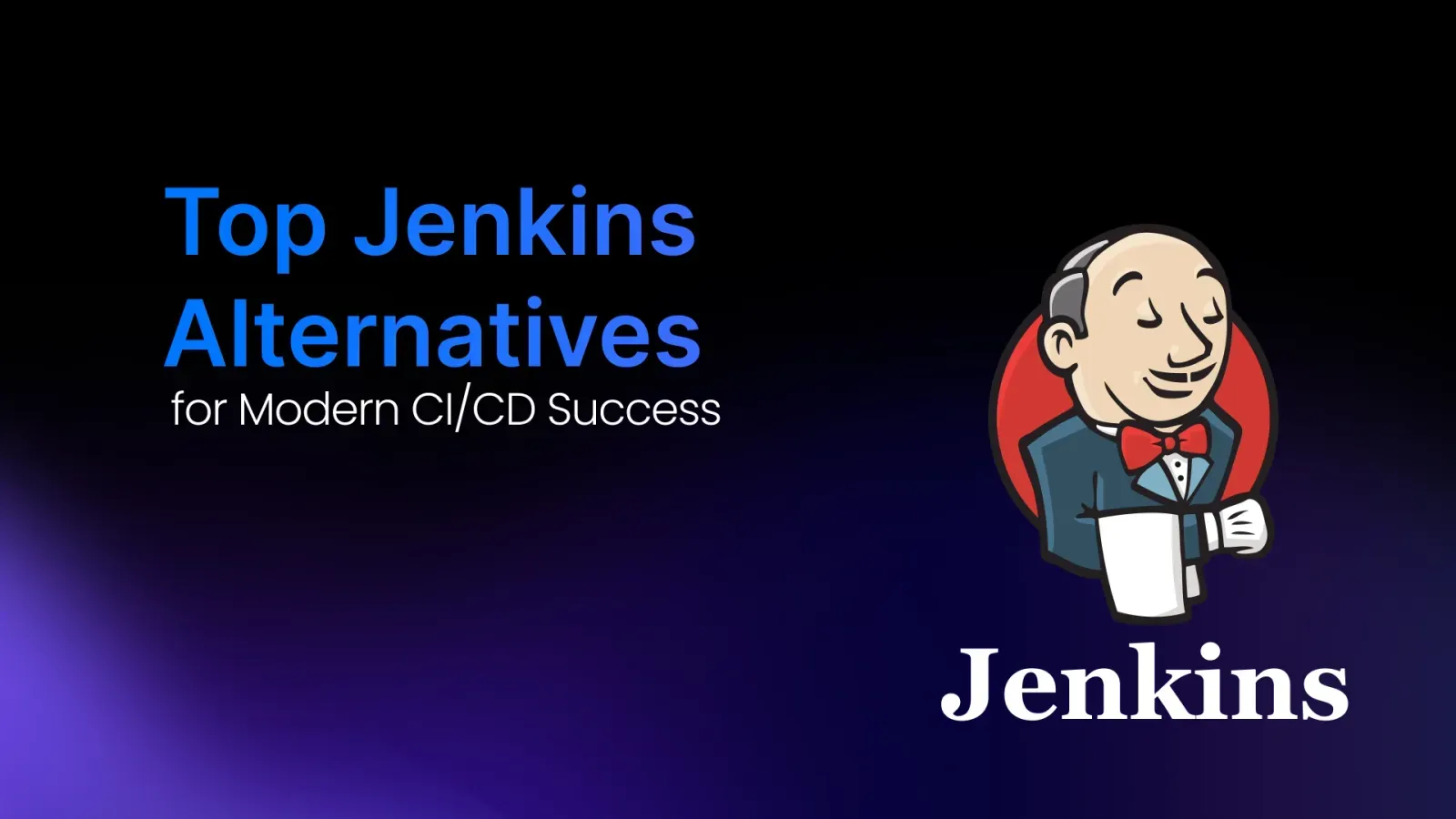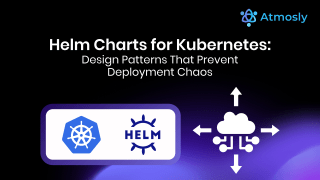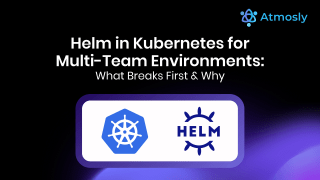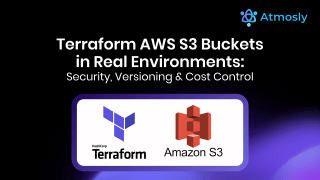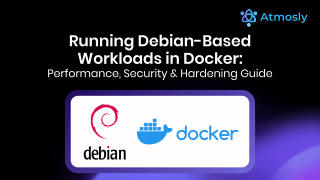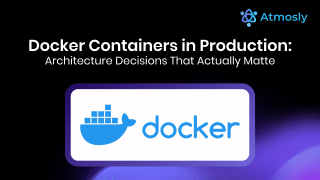Introduction
Jenkins has long been a pioneer in CI/CD automation, playing a pivotal role in the evolution of DevOps workflows. As an open-source platform, it gained widespread adoption for its ability to streamline software builds, testing, and deployments. Its extensive plugin ecosystem and customizable pipelines have made it a cornerstone among DevOps pipeline tools for development teams around the world.
However, as the DevOps landscape evolves, so do the demands on CI/CD tools like Jenkins. Modern software development increasingly relies on cloud-native environments, containerization, and real-time collaboration—areas where Jenkins can sometimes show its age. Performance bottlenecks, steep learning curves for new users, and complex plugin management are among the challenges teams face when scaling with Jenkins. These limitations, coupled with the rise of Jenkins alternatives, have led many organizations to explore the best Jenkins replacements available today.
Whether it's the need for faster build times, seamless integration with modern development tools, or a more intuitive user experience, teams are finding value in Jenkins CI/CD competitors that cater to today’s dynamic requirements. Tools like GitLab, CircleCI, and GitHub Actions bring innovative features such as parallel builds, native cloud support, and all-in-one DevOps pipeline tools that streamline workflows and reduce complexity.
In this article, we’ll explore some of the most compelling Jenkins alternatives and how they address modern DevOps challenges. By evaluating these tools, you can find the solution that best aligns with your team’s goals, ensuring smoother pipelines, faster deployments, and overall DevOps success. Let’s dive into the options that can take your CI/CD processes to the next level.
Why Look for Jenkins Alternatives?
While Jenkins remains a widely used CI/CD tool, modern development environments and workflows have introduced challenges that make Jenkins alternatives and CI/CD tools like Jenkins more appealing for many teams. Here’s why organizations might consider moving away from Jenkins:
Scalability Challenges
As software development grows increasingly complex, Jenkins can struggle to manage large-scale distributed systems efficiently. Workflows requiring frequent builds, extensive testing, and deployment across multiple environments can expose performance bottlenecks in Jenkins, especially when scaling horizontally. Newer Jenkins CI/CD competitors, such as CircleCI and GitLab, are designed with cloud-native architectures in mind, offering better scalability and faster processing for distributed pipelines.
Maintenance Overhead
Jenkins’ open-source flexibility comes with significant maintenance responsibilities. Teams often need to manage manual updates, resolve plugin dependencies, and ensure server uptime. The dependency on plugins for extended functionality can create compatibility issues, leading to frequent troubleshooting. By contrast, SaaS-based Jenkins alternatives like GitHub Actions and Travis CI eliminate the need for manual maintenance, enabling teams to focus on development rather than infrastructure management.
User Experience
Jenkins’ user interface (UI), while functional, is considered outdated and less intuitive compared to newer platforms. For teams prioritizing ease of use, the best Jenkins replacements like GitLab and Harness provide clean, modern interfaces that simplify pipeline creation, monitoring, and management. The reduced learning curve helps onboard new team members faster, increasing productivity across the board.
Ecosystem Fit
Modern DevOps relies heavily on cloud-native workflows, containerized applications, and multi-cloud environments. Jenkins, while versatile, can require extensive customization to integrate with these technologies. CI/CD tools like Jenkins such as Spinnaker and ArgoCD are purpose-built for Kubernetes and cloud-native deployments, making them a better fit for teams embracing these environments.

Key Features to Consider in Jenkins Alternatives
Selecting the right tool among the many Jenkins alternatives is critical for streamlining software development workflows. With so many DevOps pipeline tools and Jenkins CI/CD competitors available, it’s essential to focus on features that align with your team’s requirements and future growth. Here are the key features to consider when evaluating best Jenkins replacements:
Cloud-Native Capabilities
Modern development workflows increasingly rely on multi-cloud environments and containerized applications. Robust Jenkins alternatives should seamlessly integrate with cloud providers like AWS, Azure, and Google Cloud, and support container orchestration platforms like Kubernetes. Tools such as Spinnaker and ArgoCD are purpose-built for cloud-native applications, making them ideal DevOps pipeline tools for teams adopting microservices or hybrid-cloud architectures.
Ease of Setup and Maintenance
Complex setup and high maintenance requirements can slow down development. Look for Jenkins alternatives that offer simple installation and configuration or opt for SaaS-based CI/CD tools like Jenkins such as GitHub Actions or CircleCI, which minimize operational overhead. These platforms eliminate the need for server management, plugin updates, and manual maintenance, enabling teams to focus on delivering code rather than managing infrastructure.
Scalability
As projects grow, your DevOps pipeline tools must handle larger and more complex pipelines without compromising performance. The best Jenkins replacements like GitLab and Harness provide features such as parallel builds and distributed execution, ensuring smooth operation even with high-demand workflows. Scalable solutions are particularly important for enterprises managing large teams and frequent deployments across multiple environments.
Integrations
Seamless integration with existing tools and platforms is a must. The leading Jenkins CI/CD competitors should support version control systems like GitHub, Bitbucket, and GitLab, as well as cloud providers and third-party DevOps pipeline tools like monitoring systems and security scanners. Jenkins excels in integration capabilities due to its plugin-rich ecosystem, while other Jenkins alternatives like CircleCI provide built-in compatibility for faster setup.
Pricing
Budget constraints are an important consideration when selecting DevOps pipeline tools. Open-source tools like Jenkins offer cost-effective solutions for self-hosted setups but come with additional maintenance responsibilities. SaaS Jenkins alternatives like GitHub Actions or Travis CI operate on subscription models, which may be more cost-effective for smaller teams or organizations without the resources for infrastructure management. Evaluate pricing tiers to ensure the Jenkins alternative aligns with your team’s scale and future growth.
Top 10 Jenkins Alternatives You Must Try in 2025!
As the CI/CD landscape evolves, more tools have emerged as strong Jenkins alternatives, each addressing unique needs and challenges in modern DevOps. Here are the top 10 best Jenkins replacements for 2025, each bringing something unique to the table:
1. GitHub Actions
Why It’s Great: GitHub Actions offers native integration with GitHub repositories, allowing teams to automate CI/CD workflows using simple YAML configurations. Its vast marketplace features pre-built actions for testing, deployment, and notifications, making it easy to assemble robust pipelines. Parallel jobs, matrix builds, and a wide range of triggers provide tremendous flexibility and scalability.
Use Case: Perfect for teams already working within the GitHub ecosystem, seeking automation with minimal setup and maximum integration.
2. GitLab CI/CD
Why It’s Great: GitLab CI/CD is part of a comprehensive DevOps platform that includes source code management, issue tracking, and continuous delivery. It boasts features like custom runners, advanced parallelization, auto DevOps templates, and built-in security scans. Its all-in-one nature reduces tool sprawl and streamlines development workflows.
Use Case: Best suited for teams using GitLab or those wanting an integrated platform for source code, CI/CD, and DevSecOps in a single interface.
3. CircleCI
Why It’s Great: CircleCI is known for its blazing fast builds, intelligent caching, and flexible deployment options (cloud or self-hosted). It supports highly scalable pipelines, parallelism, and a rich ecosystem of integrations for version control, notifications, and deployment targets. Real-time insights and advanced analytics help teams optimize delivery performance.
Use Case: Ideal for engineering teams needing speed, deep analytics, and flexible deployment options—whether on cloud or on-premises.
4. Argo CD
Why It’s Great: Argo CD is a Kubernetes-native GitOps continuous delivery tool. It excels at declarative deployment, multi-cluster management, and automated sync/rollbacks, making it easy to manage complex Kubernetes environments. Its focus on GitOps principles brings transparency and repeatability to modern infrastructure deployments.
Use Case: The top choice for teams running Kubernetes clusters and seeking declarative, version-controlled deployment workflows.
5. Atmosly (Powered by SquareOps)
Why It’s Great: Atmosly delivers a next-generation CI/CD experience with a modern UI, one-click cloud-native integrations, and built-in Kubernetes support. Automated pipeline creation, real-time monitoring, and out-of-the-box deployment tools like Grafana and Argo Workflows set Atmosly apart. Teams benefit from streamlined setup and holistic visibility across the development lifecycle.
Use Case: Perfect for organizations seeking an intuitive, all-in-one CI/CD and Kubernetes management platform—with seamless monitoring and integrated DevSecOps.
6. Azure DevOps Pipelines
Why It’s Great: Azure DevOps Pipelines offer robust CI/CD capabilities with deep integration into Azure services and strong support for other clouds, including AWS and Google Cloud. Its multi-platform support (Windows, Linux, macOS) and detailed permission controls make it enterprise-ready.
Use Case: Ideal for teams leveraging the Microsoft ecosystem or deploying workloads on Azure and other cloud providers.
7. Spinnaker
Why It’s Great: Spinnaker is purpose-built for sophisticated, multi-cloud continuous delivery. It supports advanced deployment strategies like canary and blue/green deployments, as well as automated rollbacks, making it a go-to choice for large-scale production environments.
Use Case: Best for teams needing to manage complex, multi-cloud deployments with reliability and ease.
8. Travis CI
Why It’s Great: Travis CI is praised for its simplicity and quick setup, particularly for open-source projects. It supports over 30 programming languages, auto-detects and runs tests on code changes, and integrates easily with GitHub and Bitbucket.
Use Case: Perfect for smaller teams and open-source projects that value easy configuration and rapid feedback loops.
9. Bamboo (Atlassian)
Why It’s Great: Bamboo offers seamless integration with Atlassian tools like Jira and Bitbucket, enabling end-to-end traceability from code to deployment. Its custom workflows and agent management support complex, scalable build environments.
Use Case: Best for teams invested in the Atlassian ecosystem seeking advanced customization and traceability in their pipelines.
10. TeamCity
Why It’s Great: TeamCity by JetBrains is an enterprise-grade CI/CD platform known for advanced build management, VCS support, and its powerful extensibility through plugins and APIs. Configurations as code and deep analytics further boost productivity.
Use Case: Ideal for enterprises needing robust build pipelines, custom integrations, and fine-grained control over the entire CI/CD process.
Criteria for Selecting the Right CI/CD Tool
Choosing the right CI/CD tool is a critical decision that impacts your team’s productivity and development workflows. Here are the key criteria to consider:
Cloud-Hosted vs. Self-Hosted
One of the first decisions is whether to opt for a cloud-hosted or self-hosted solution. Cloud-hosted tools like GitHub Actions or CircleCI offer convenience by eliminating server maintenance, automatic updates, and quick scalability. On the other hand, self-hosted solutions like Jenkins or GitLab provide greater control, customization, and data privacy but require more effort for setup and ongoing management. Consider your team’s infrastructure, budget, and technical expertise when making this choice.
Scalability and Performance
The ability to scale is essential for growing teams or complex pipelines. Tools like GitLab CI/CD and CircleCI handle larger workloads with parallel builds and distributed pipelines, ensuring efficient performance. Evaluate how well a tool can manage increasing build demands, the complexity of workflows, and support for distributed teams to ensure it meets your long-term needs.
Cost Analysis
Budget constraints are often a decisive factor. Subscription-based tools like Azure DevOps Pipelines and GitHub Actions may offer predictable pricing and scalability, while open-source solutions like Jenkins or ArgoCD are cost-effective but may involve hidden costs for maintenance and infrastructure. Compare pricing models, including user limits, build minutes, and enterprise features, to align with your financial resources.
Ecosystem Integration
Seamless integration with your existing toolchain is vital. Ensure the tool supports version control systems, cloud providers, and third-party tools your team relies on, such as Kubernetes, Terraform, or monitoring platforms. Tools like Spinnaker and Atmosly excel in integrating with modern DevOps workflows, making them ideal for teams seeking compatibility.
.png)
How to Choose the Right CI/CD Tool for Your Team
Selecting the right CI/CD tool is a strategic decision that can dramatically impact the efficiency and success of your DevOps processes. Here’s how to make the best choice for your team:
1. Assess Your Workflow Requirements
Start by analyzing your current and future workflow needs. Does your team rely on cloud-native architectures, Kubernetes, or multi-cloud environments? Tools like ArgoCD and Spinnaker are ideal for Kubernetes-heavy workflows, while GitHub Actions and CircleCI excel in cloud-native pipelines. For hybrid setups, consider tools like Atmosly, which offer seamless integration across multiple environments. Identifying these requirements ensures the tool you choose aligns with your operational goals.
2. Evaluate Ease of Use
A tool’s usability can significantly affect adoption rates. Consider setup time, documentation quality, and the overall learning curve. SaaS solutions like GitLab CI/CD and GitHub Actions are known for their intuitive interfaces and quick setup processes. Look for detailed tutorials, templates, and pre-configured workflows that can help your team get up to speed quickly. Tools with a simpler learning curve can boost productivity and reduce training overhead.
3. Prioritize Support and Community
The availability of vendor support, community forums, and plugins is crucial for long-term success. Open-source tools like Jenkins have active communities that regularly develop plugins and offer troubleshooting assistance. SaaS platforms often come with dedicated customer support, which can be invaluable for resolving complex issues. Ensure the tool you select has sufficient resources to address challenges effectively.
4. Run a Pilot Test
Before fully migrating, run a pilot test with the alternative tool in your existing CI/CD pipeline. Test its performance, integration capabilities, and usability under real-world conditions. Pilot testing allows you to identify potential challenges and ensure the tool fits your team’s workflows without disrupting ongoing projects.
Atmosly’s Use Cases
Adopting the right CI/CD tool can transform software delivery and operational efficiency. Here are real-world examples of how teams leverage tools like Atmosly for specific scenarios:
Atmosly for Automated Rollbacks and Multi-Cluster Support
A large enterprise deploying microservices across multiple Kubernetes clusters leveraged Atmosly to enhance their deployment reliability. Atmosly’s automated rollback feature ensured that failed updates were reverted quickly, minimizing downtime and preserving service availability. Additionally, its multi-cluster support enabled the team to manage deployments across several clusters simultaneously, ensuring consistency and scalability. By using Atmosly, the organization significantly reduced the complexity of managing distributed systems, maintaining high availability even during critical updates.
Atmosly for Multi-Cloud Deployments
An organization operating across AWS and GCP required a multi-cloud CI/CD tool to scale efficiently. With Atmosly, they streamlined their deployments across both cloud providers, leveraging its robust integration capabilities. Atmosly’s intuitive interface allowed the team to configure pipelines for cross-cloud resource management with minimal effort. Real-time monitoring dashboards provided actionable insights into their deployments, ensuring smooth operation across environments. The one-click integration of monitoring tools like Grafana further simplified operations, reducing overhead and enabling the team to focus on strategic goals. Atmosly’s ability to unify multi-cloud workflows made it a game-changer for their deployment strategy.
Conclusion
Jenkins has been a trailblazer in CI/CD automation, but its limitations—such as scalability challenges, maintenance overhead, and integration complexities—can hinder modern DevOps workflows. As the industry evolves, exploring alternatives has become essential for teams seeking improved performance, flexibility, and ease of use. Tools like GitHub Actions, GitLab CI/CD, Argo CD, and Atmosly offer tailored solutions for diverse workflows, from small agile teams to large-scale Kubernetes deployments and multi-cloud operations.
Selecting the right CI/CD tool depends on your team’s unique needs, whether that’s optimizing for cloud-native environments, simplifying deployments, or enhancing collaboration. Evaluating criteria such as scalability, cost, integrations, and usability ensures you find a platform that aligns with your infrastructure and goals.
Transitioning to modern CI/CD tools doesn’t have to be overwhelming. Our DevOps services and tools are designed to guide you through the process, from identifying the best-fit solution to seamless implementation. Let us help you streamline your development pipelines and achieve faster, more reliable software delivery.
Contact us today to learn how our expertise can empower your team to transition to cutting-edge CI/CD platforms and elevate your DevOps strategy!
